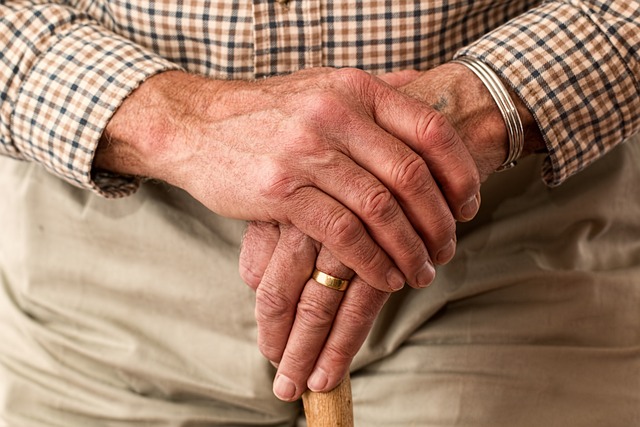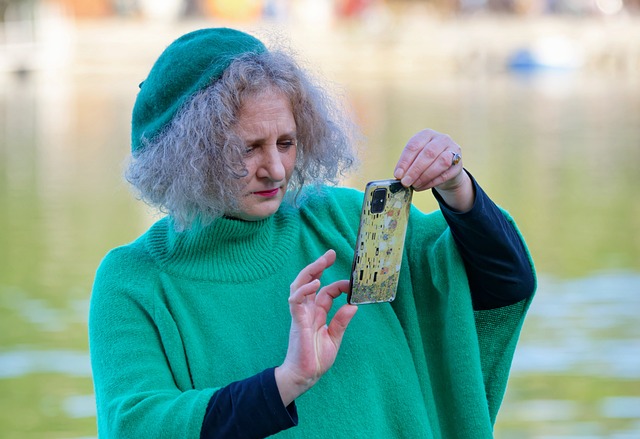Elderly companion services are a crucial resource for families managing the care of aging relatives, offering tailored companionship and practical assistance to enhance seniors' autonomy and quality of life at home. These services help prevent caregiver burnout by providing respite for family members, ensuring they can rest and recharge. They enrich seniors' lives through meaningful social interactions, cognitive engagement in activities, and emotional support. This holistic approach not only benefits the elderly's emotional and cognitive health but also gives families peace of mind regarding their loved ones' care and social engagement. Elderly companion services are designed to address the challenges of daily living for seniors, assisting with tasks such as meal prep, medication management, and light cleaning. They are particularly beneficial for those experiencing cognitive or physical decline. When selecting these services, it's important to consider the senior's health status, social needs, and home safety to ensure a match with their unique requirements. These services play a pivotal role in improving seniors' quality of life while offering families essential support and caregiving relief, thus strengthening family relationships. With the right companion service—whether hourly, live-in, or something in between—families can find comfort in knowing their loved ones are receiving professional, dignified, and personalized care.
Navigating the complexities of caregiving for elderly loved ones can be a challenging journey for families. As this article delves into the role of Elderly Companion Services as a valuable resource for alleviating the pressures associated with caregiving, readers will gain insight into assessing care needs and understanding the myriad benefits these services offer. From exploring the various types of Elderly Companion Services available to providing practical tips for seamless integration into existing family care plans, this article is designed to guide families towards relief and support in their caregiving endeavors.
- Understanding the Role of Elderly Companion Services in Family Caregiving Relief
- Assessing the Needs: How to Determine If Elderly Companion Services Are Right for Your Loved One
- The Benefits of Professional Elderly Companion Support for Both Seniors and Families
- Navigating the Options: Types of Elderly Companion Services Available
- Practical Tips for Integrating Elderly Companion Services into Family Caregiving Plans
Understanding the Role of Elderly Companion Services in Family Caregiving Relief

Elderly companion services play a pivotal role in alleviating the burdens faced by families who provide care for aging loved ones. These services are designed to offer companionship and assistance tailored to the specific needs of seniors, enabling them to maintain independence and a higher quality of life within the comfort of their own homes. By providing support with daily activities such as meal preparation, medication management, and light housekeeping, these services allow caregivers to take respite from their duties, reducing the risk of caregiver burnout. Furthermore, companion services enrich the lives of seniors by offering engaging social interactions, mental stimulation through activities, and emotional support. This not only contributes positively to the well-being of the elderly but also provides families with the reassurance that their loved ones are receiving attentive care and companionship, which is invaluable for those juggling work, family, and caregiving responsibilities.
Assessing the Needs: How to Determine If Elderly Companion Services Are Right for Your Loved One

When a loved one reaches an age where daily tasks become challenging, it’s crucial to assess their needs and determine if additional support is necessary. Elderly companion services can offer the assistance required to maintain their independence and quality of life. These services are tailored to provide companionship, emotional support, and help with activities of daily living, such as grooming, dressing, and mobility, which can be particularly beneficial for seniors experiencing cognitive decline or physical limitations. To determine if these services are the right fit, consider your loved one’s current health status, their social engagement levels, and any safety concerns within their home environment. It’s important to evaluate whether they could benefit from assistance with meal preparation, medication management, or light housekeeping, tasks that may become overwhelming or hazardous without help. Additionally, assessing the social dynamics can reveal if a companion could enhance their well-being by providing conversation, shared activities, and a sense of security. Engaging with healthcare providers and understanding your loved one’s medical history can further inform this decision, ensuring that the services align with their specific needs and preferences. By carefully evaluating these factors, families can make an informed choice about whether elderly companion services are the appropriate next step to provide caregiving relief and support for their aging relatives.
The Benefits of Professional Elderly Companion Support for Both Seniors and Families

Engaging elderly companion services can significantly enhance the quality of life for seniors, providing them with consistent companionship that addresses both social and emotional needs. These services offer a tailored approach to care, ensuring that seniors receive the individualized attention they deserve. For instance, professional companions can assist with daily activities, offering a helping hand with tasks such as meal preparation, light housekeeping, and medication management. This support enables elders to maintain their independence for longer, fostering a sense of self-worth and autonomy. Moreover, these services alleviate the stress and responsibilities from family caregivers, allowing them to manage their own well-being without feeling overwhelmed by caregiving duties. Families can find comfort in knowing that their loved ones are not only safe but also engaging in meaningful interactions with dedicated professionals who understand the nuances of elder care. This peace of mind is invaluable, as it reduces the likelihood of caregiver burnout and enhances family relationships by removing the pressure of constant caregiving responsibilities. Overall, elderly companion services offer a compassionate and practical solution that benefits both the seniors who receive support and the families who are afforded relief from their caregiving roles.
Navigating the Options: Types of Elderly Companion Services Available

When considering caregiving relief for families with elderly members, it’s crucial to explore the array of elderly companion services available. These services are designed to support seniors in their daily lives, offering a range of assistance from basic companionship to more complex health monitoring. Professional caregivers can provide companionship, engage in social activities with the senior, and offer emotional support, which is invaluable for maintaining mental well-being. Additionally, many elderly companion services include light housekeeping, meal preparation, and medication reminders to ensure a safe and comfortable living environment. For those requiring more specialized care, there are options such as personal care assistance, where aid with dressing, grooming, and hygiene is offered. Similarly, health-focused services can monitor vital signs, administer medications, and facilitate appointments with healthcare providers. By understanding the specific needs of your loved one and researching the various elderly companion services, families can find tailored solutions that offer both care and companionship, thereby alleviating some of the pressures associated with caregiving duties. It’s a process of matching the right service with the unique requirements of the individual to ensure they receive the highest quality of life possible.
Practical Tips for Integrating Elderly Companion Services into Family Caregiving Plans

Incorporating elderly companion services into family caregiving plans can significantly alleviate the pressures on families providing care for aging loved ones. A key practical tip is to assess the specific needs of the senior family member early on, which includes understanding their daily routines, medical requirements, and social preferences. This comprehensive evaluation enables the selection of a companion service that is tailored to the individual’s needs, ensuring a more effective and personalized care experience. For instance, if the elderly individual enjoys certain activities or has specific health conditions, a companion service provider with expertise in those areas can be sought out. Moreover, it’s beneficial to maintain open communication with the companion service providers to ensure they are aligned with the family’s caregiving approach and goals. Regular check-ins and updates can facilitate a smooth transition for the senior into this new support system, fostering trust and continuity of care. Families should also explore various companion service options, including agencies that offer hourly or live-in assistance, to find the best fit for their loved one’s situation. By thoughtfully integrating these services, families can enhance the quality of life for their elderly relatives while managing their own well-being more effectively. It’s advisable to research and compare different providers of elderly companion services, considering factors such as qualifications, experience, and feedback from other families who have used their services. This due diligence ensures that the care provided is not only a practical solution but also one that brings comfort and companionship to the senior in a manner that aligns with the family’s expectations and values.
In conclusion, elderly companion services represent a pivotal support system for families navigating the complexities of caregiving. By thoroughly understanding the role these services play, families can more effectively assess and meet the needs of their loved ones. The multifaceted benefits of professional elderly companion support not only enhance the well-being of seniors but also provide respite for caregivers, allowing them to maintain their own health and wellness. With a variety of options available, it is imperative for families to explore and integrate the most suitable companion services into their caregiving plans. These tailored solutions can alleviate the strain of caregiving duties and offer peace of mind, making elder care a collaborative effort between family and professionals. Embracing elderly companion services can be a transformative step towards ensuring that families receive the support they need in this rewarding but often challenging role.
